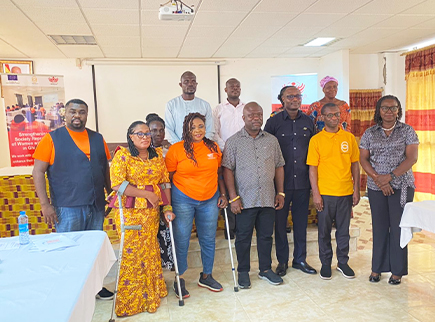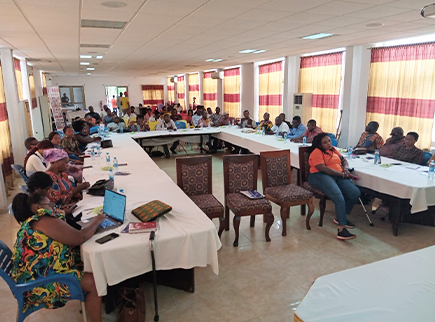Government has allocated 80 per cent of the District Assemblies Common Fund (DACF) directly to Metropolitan, Municipal and District Assemblies (MMDAs) to accelerate inclusive development, particularly for Persons with Disabilities (PWDs).
Mr. James Gunu, Volta Regional Minister, said the move, in line with President Mahama’s resetting agenda, demonstrated government’s commitment to removing barriers of discrimination and ensuring equal opportunities for all citizens.
Speaking at a stakeholder engagement workshop organised by the Women with Disability Development and Advocacy Organisation (WODAO) in Ho, he reiterated that disability was not inability, urging Assemblies to prioritise inclusion in local development.
He highlighted President Mahama’s policy to exempt first-year university students from academic user fees, adding that PWDs would receive further support to pursue tertiary education free of charge.

Mr. Gunu noted that PWDs constituted about 10 per cent of Ghana’s population, stressing the importance of systems that guarantee their welfare and rights. He commended WODAO for its leadership in advocating for women with disabilities and pledged government’s continued support.
Madam Veronica Denyo Kofiedu, Executive Director of WODAO, welcomed the direct DACF allocation, saying it would speed up the disbursement of the three per cent statutory allocation to PWDs. She emphasised the importance of building coalitions, strengthening advocacy, and promoting disability-inclusive policies.
Other speakers, including Mr. Augustus Awity, former Regional Chief Director, and Mr. David Agyeman, Country Director of Sightsavers, underscored the need for collaboration to break barriers against women with disabilities, expand opportunities, and strengthen community mobilisation.
The workshop on the theme “Fostering Strategic Alliances to Promote the Rights of Women with Disabilities in Development”, was organised in partnership with Sightsavers International, ABAK Foundation, and funded by the European Commission.
Fraternal messages came from several civil society organisations, including the Ghana Federation of Persons with Disabilities, African Disability Institute, Voice of Women and Children with Disabilities, and the Department of Social Welfare.

